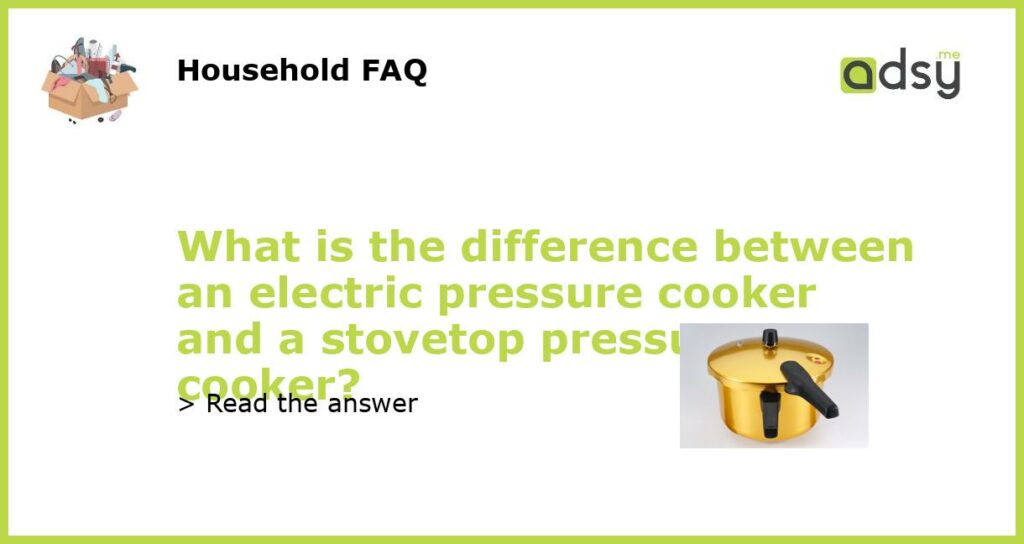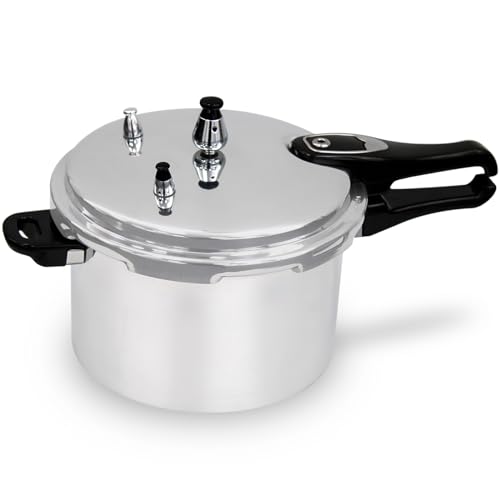Electric Pressure Cooker vs. Stovetop Pressure Cooker: Exploring the Differences
Pressure cookers have become increasingly popular in modern kitchens due to their ability to cook meals quickly and efficiently. However, there are different types of pressure cookers available, each with its own set of features and advantages. Two common options are electric pressure cookers and stovetop pressure cookers. In this article, we will explore the differences between these two types of pressure cookers to help you make an informed decision.
Heating Mechanism
An important difference between electric pressure cookers and stovetop pressure cookers is the heating mechanism. Electric pressure cookers are equipped with an electric heating element that provides consistent and even heat distribution. This allows for precise temperature control and eliminates the need for constant monitoring during the cooking process. On the other hand, stovetop pressure cookers generate heat from a traditional stovetop burner. This means that the heat source may not be as evenly distributed, requiring occasional adjustments to maintain the desired cooking temperature.
Cooking Environment
The cooking environment is another factor to consider when choosing between an electric pressure cooker and a stovetop pressure cooker. Electric pressure cookers are designed to be used on countertops or other stable surfaces. They typically have a built-in control panel and display, which allows for easy programming and monitoring of the cooking process. Stovetop pressure cookers, on the other hand, are used directly on a stovetop burner. This may limit the available cooking space and require additional attention to avoid accidental burns or spills.
Convenience and Ease of Use
When it comes to convenience and ease of use, electric pressure cookers tend to have the upper hand. These appliances often come with pre-set cooking programs for various types of dishes, making it simple for even inexperienced cooks to achieve perfect results. The built-in safety features, such as automatic pressure release and locking mechanisms, further enhance the user experience. Stovetop pressure cookers, while still relatively easy to use, may require more manual adjustments and monitoring during the cooking process.
Speed and Efficiency
Both electric pressure cookers and stovetop pressure cookers offer significant time savings compared to conventional cooking methods. However, electric pressure cookers typically have faster cooking times due to their precise temperature control and even heat distribution. They are also more energy-efficient, utilizing less power compared to stovetop pressure cookers. Stovetop pressure cookers, while slightly slower, are still highly efficient and can significantly reduce cooking times compared to traditional stovetop cooking methods.
Price and Versatility
Price and versatility are factors that also play a role in the decision-making process. Electric pressure cookers tend to be more expensive upfront due to their advanced features and technology. However, they often offer a wider range of cooking functions, allowing you to sauté, slow cook, or even bake in addition to pressure cooking. Stovetop pressure cookers are generally more affordable but may lack some of the additional features found in electric models.
In conclusion, whether you choose an electric pressure cooker or a stovetop pressure cooker depends on your specific needs and preferences. Electric pressure cookers offer consistent heat distribution, convenience, and a variety of cooking functions. Stovetop pressure cookers, while requiring more manual adjustments, provide a more traditional cooking experience and may be more budget-friendly. Consider your cooking style, kitchen setup, and desired features to determine the best option for you.






